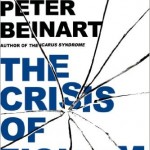(Update: Since the original publication of this post, it has been repeatedly pointed out to me that what I’ve said here does not qualify me as a Zionist. I think I constructed a good argument for why I am a kind of Zionist, but those who disagree have told me—some of them in no uncertain terms—that what I’ve described here is better described as post-Zionism. I actually don’t care what it’s called. I stand by what I wrote.)
With the publication of my previous post (My Crisis of Zionism), I have had the pleasure of being called an idiot by Rabbi Daniel Gordis and many other names by many other people. This is what happens when we touch the third rail of Israel in the Jewish world today.
One intelligent question I’ve been asked is whether I am a Zionist any more or not?
I believe that I am. I’ll begin with a little history.
The core idea behind Zionism was that the Jews needed a refuge. Given the horrors of antisemitism, Zionists believed that relief for the Jews could only be achieved by the creation of their own homeland. Suggestions for a location abounded, but the vast consensus was that it should be where it is now. So Zionism focused its aspirations on that land.
Early Zionism, however, was not a movement that provided any kind of a unitary statist vision. In its early days many Zionists promoted a Jewish homeland that was nothing like the one that developed. Rabbi Judah Magnes, Martin Buber and Ahad Ha’am were among those who saw no way to justly establish an exclusively Jewish state. Theodor Herzl is considered the founder of political Zionism. Many criticized him for his lack of understanding of Jewish history or culture. The utopian nature of his novel, Altneuland, was probably a result of that. Nevertheless, it provides some insight into what the man whose picture hangs in every official Israeli building had in mind. And what he had in mind was a state that displayed the highest form of liberal universalism. He imagined it housing a celebrated international “Peace Palace” dedicated to the unity of all humanity.
His novel also reminds us that he recognized the dangers inherent in building an ethnocracy. In one passage, he describes a hard-fought political battle between those who desired Jewish exclusivity and those who sought a more inclusive nation.
Shlomo Avineri summed it up in a 2009 Haaretz column:
One of the most fascinating aspects of the book is the description of the election campaign that was to have taken place in 1923. The campaign focused on the rights of the country’s non-Jewish inhabitants. Contrary to what is sometimes said of Zionism—that it ignored the existence of Arabs in the country—the book reveals not only an awareness of the existence of the Arab population; the Jewish state is predicated on the concept that all its inhabitants, regardless of religion, race or gender, enjoy equal rights and the right to vote. These rights are extended not only to Arabs, but to women, though at the time the book was written no Western democracy had given women the vote.
In the book, not only do the country’s Arabs have the right to vote, some of them serve in key posts. Among them is one of the novel’s heroes, an Arab engineer from Haifa named Rashid Bey. To use a term from our day, Herzl envisioned a state that would be both Jewish and democratic, both a Jewish nation state and a state of all its citizens.
Herzl’s ideas did not come to fruition. Utopias never do. But wars are real and bloodshed defined—and continues to define—much of Israel’s psyche. We can argue all day about who should be blamed for these wars (would it surprise you to learn that I place most of the responsibility on the Arab world?) but the wars happened and continue to occur and, moreover, much of my disappointment in Israel has absolutely nothing to do with the conduct of these wars. I am not naïve about the dangers facing Israel.
No, my disappointments about Israel are grounded in the kinds of things that are either not related (or only tangentially so) to what its enemies have wrought. I’m talking about things like the way it treats its own citizens and those who have come under its control. No threat to Israel justifies this. Most have little to do with the actual Arab-Israeli or Palestinian-Israeli conflict.
The list is long. Each of these items can and have filled up entire books.
It includes policies of discrimination in all of these areas:
- the mobility and housing of non-Jewish citizens;
- the unjust distribution of national resources among Jewish and Arab population centers;
- the absence of a neutral state authority to deal with marriage, divorce or even burial (resulting in a ban on intermarriage between Jews and others and even a ban on intermarriage between some Jews);
- the assignment of “national” classifications for people (such as “Jewishness”) on the basis of lineage or religious standards (in the Jewish case Orthodox standards) rather than by voluntary association;
- the consequent determination of obligations and opportunities of citizenship on the basis of these “national” classifications of “Jew,” “Arab” and so forth, and the withholding of the right to determine one’s own identity or affiliate with any or no cultural or religious heritage;
- the consequent negation of any kind of meaningful unified nationality as defined by citizenship; and
- the privileging of immediate immigration rights solely for those defined as Jews by “nationality,” even for those Jews immigrating from countries where being Jewish poses no threat or impediment. (Ironically, Jews eligible for immediate immigration include those not of matrilineal descent as long as any rabbi confirms them as Jews. Their unequal treatment begins only after they’ve immigrated.)
Anyone who wants to know more about many of these issues might peruse the report prepared by the U.S. State Department’s Bureau of Democracy, Human Rights, and Labor during the second term of President George W. Bush, no less.
So what about the occupation? Isn’t that what most of the world is up in arms about when it comes to Israel? I am less concerned by the fact of occupation (given that I believe that Israel acquired those territories in a legitimate defensive war) than I am about the settlement policies and programs that ensued.
Even those who believe that a two-state arrangement with the Palestinians is a death sentence for Israel—a popular argument these days and one that is also the position of most ministers in Israel’s government—cannot honestly claim security concerns to justify Israel’s settlement policy.
There are settlements that were established with security in mind, particularly those along the Green Line or the Jordan River. I can’t really say whether these really do provide security. I’m not a military strategist. But even if this is the case, security claims do not justify hundreds of thousands of settlers taking up residence deep inside areas of Palestinian Arab populations. If anything, those are a threat to Israel’s security (as has been pointed out by many of its own security officials throughout the years).
I think it’s pretty clear that those settlements were motivated not by security concerns, but by messianic religio-cultural considerations similar to America’s shameful idea of Manifest Destiny. Why would we denounce that racist American policy, a product of a more primitive time, while turning our backs on Israel’s present-day version? Have we learned nothing?
At the same time that Israel has invested huge sums to build infrastructure and housing for Jews in these territories, it has done virtually nothing to improve the lives of Palestinian Arabs living there.
Take Jerusalem, for example.
I certainly would never advocate for a re-division of the city into pre-1967 boundaries. An international border dividing an ancient lane in the Old City is a silly and unworkable idea. I agree with those who say that Israel’s security does depend to a very great extent on a peaceful and sensibly bounded Jerusalem. That’s no more than an acknowledgment of political and geographical realities.
Yet I’ve noticed over the years that security is not really the stated motivation for what’s happened in Jerusalem. Rather, Israelis—and many Jews throughout the world—cite a religious vision of Jerusalem’s unity. I cannot count the number of times I’ve heard some biblical justification or another. Perhaps the most popular comes from Psalms (122:2-3): “Our feet are standing within your gates, O Jerusalem; Jerusalem—built as a city that is bound firmly together.”
Bound firmly together?!
Jerusalem is many things, but bound firmly together is not one of them. East Jerusalem bears no resemblance to the western side. Investment in its infrastructure is virtually nonexistent. Resources are anything but fairly distributed throughout the city. Palestinian Jerusalemites live in a completely different world than its Jewish residents. None of this was necessary. Sure, some of it could have been remedied by Jerusalem’s Palestinians accepting Israeli citizenship and using the power of the ballot box to change things. But Israeli negligence of the area cannot be blamed on Palestinians’ refusal to vote. Doing the right thing should guide decisions about how to run a city or a country, not political power. That’s called morality.
So, the conflict notwithstanding, I refuse to believe that during fifty years of controlling the West Bank and the Palestinian areas of Jerusalem, Israelis could not have invested serious energy in creating policies and programs that actually improved the lives of their residents. They did not do so because they did not wish to do so. And they did not wish to because what they really cared about was their settlement policy.
Among my critics were those who commented that I should not view Israel through the lens of what Likud has made of it. To those people I would like to point out that none of the above was created by Likud alone.
It is true that today the Likud and its several allies are not helping Israel to grow into a healthy liberal democracy. One example of this is the new McCarthyist atmosphere created by the likes of government ministers Naftali Bennett and Miri Regev with their loyalty oaths and hyper-nationalist educational and cultural policies. These outrage me, but they also leave many Israelis exasperated and I don’t think that they represent the entire nation. Israel’s current president is no leftist, but he manages to convey a completely different tone than these people and he’s been rightly praised for it.
So where does that leave me? Am I a Zionist?
There exists no agreed-upon definition of what constitutes Zionism. Thus my view that a free and more universally-minded nation—one that can honor its roots in the need to provide refuge for Jews while equally respecting its many cultures and the freedom of its citizens to identify with any or none at all—can still be called Zionism.
If this Zionism exists, then I am a Zionist.
But I do not support the kind of Zionism that uses the power of the state to sanction and preserve Jewish power structures and the resulting inequities. I do not support the kind of Zionism that employs the power of the state to promote a mission of defining or preserving Jewish peoplehood. I do not support the kind of Zionism that envisions a Jewish state from the river to the sea, its other inhabitants be damned.
Daniel Gordis, who called me an idiot for what I wrote in my previous post, believes that Israel exists in order to promote Judaism, a form of identity that only aligns with some of its citizens (and not even particularly well for most of them). That’s not the direction in which the free world is moving. People don’t feel allegiance to or identify with a state that promotes an official policy of alienating them.
I always find it strange that the same liberal American Jews who (rightly) say that America should not privilege Christians or Christianity have no problem with Israel doing the same for Jews and Judaism. Of course, I do hear them express their unhappiness about the privileging of Orthodox Judaism. But they don’t seem to get all that worked up about the twenty percent of Israel’s citizens who are ridiculed for not singing its national anthem. To most Zionists, Israeli Palestinian Arabs are a nuisance at best, a disloyal fifth column at worst.
Many people choose to ignore all of these things and simply point to Israel’s accomplishments. This is particularly sad because when people go to great lengths to emphasize Israel’s many accomplishments, they are actually making my argument. The proof of what Israel is actually capable of doing when people there set their minds to it can be found in these accomplishments. They are not insignificant. But while Israelis rightly take pride in them, they fail to see the ways in which their accomplishments underscore their failings. Things could have been different.
Having now declared myself a certain kind of extraordinarily disillusioned and saddened Zionist, I want to conclude by explaining why I still feel connected to Israel at all. Because I do. A great deal.
My first reason is that Israel is the cradle of the Jewish experience. It is true that the evolution of most religious and secular forms of Judaism and Jewish identities took place outside of the land. It’s also true that most Jews under every circumstance have had some sort of connection to the place. How could this be any different when our most ancient literature is so intimately bound to events described there?
The second (and more relevant) reason for my feeling of connection lies in the objective reality that Israel is an important center of world Jewry. Millions of Hebrew-speaking Jews live there. Many wonderful paths to Jewish identity are being developed there (with no need of government promotion). Nowhere else does there exist such a concentration of Jewish creativity.
All of this contributes to the ongoing relevance of the place in my life and the lives of many other Jews.
But it is not my country and I do not support its misguided and manufactured efforts to promote Jewish “peoplehood” or Jewish identity, not within its own borders and certainly not outside of them. If Israel seeks a worthy mission, let it focus on becoming a nation dedicated to complete and unequivocal justice and impartiality for all of those under its control. Let it be a nation where the only nationality that matters is “Israeli” and where no person or community receives preferential treatment on account of lineage. Let it adopt as its true mission the creation of a society where all people may exercise the right to choose their own religion or communities of association without interference by the state. Finally, let it work to create peace with its neighbors or, at the very least, cease placing so many obstacles in the path of a future peace by the expropriation and settlement of disputed land and the unjust treatment of those who lived there before 1967.
If these ideas represent any kind of a Zionist dream, then I am a Zionist.
















